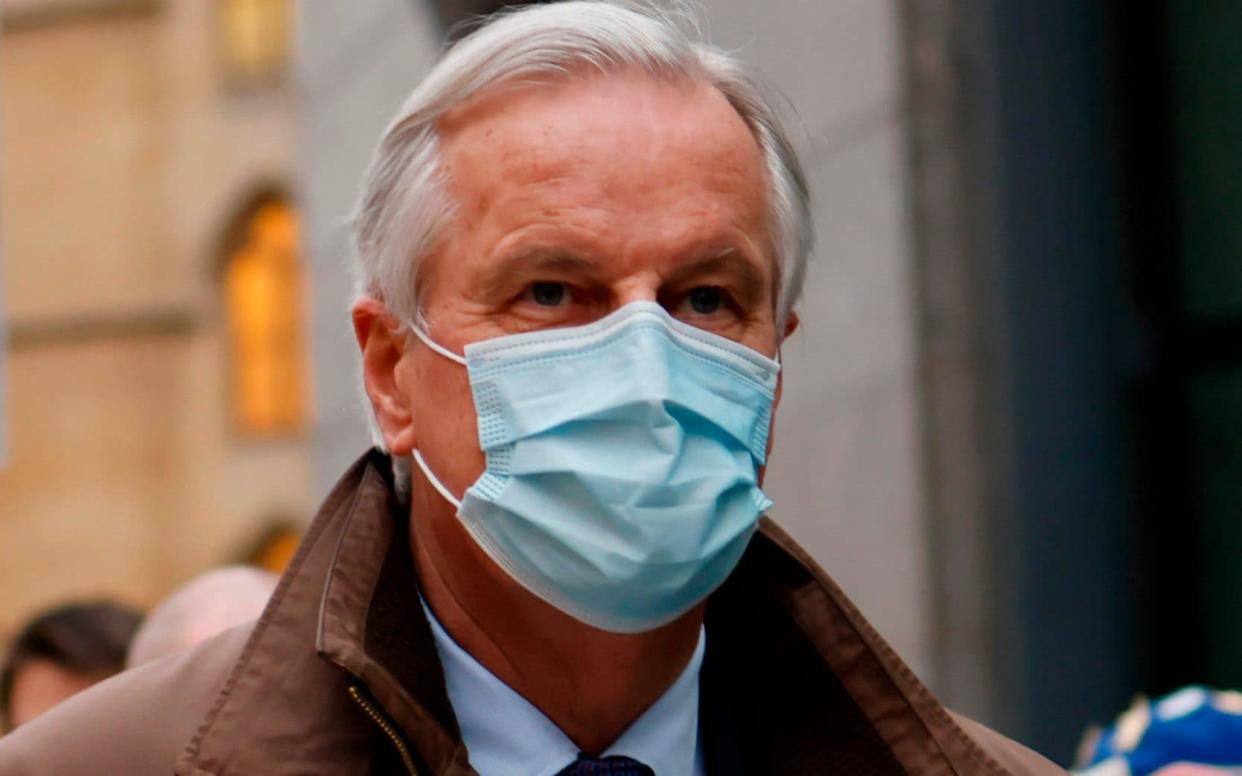Brexit: UK has given ground on fishing quotas, says Michel Barnier

Britain has lowered its demands for a greater share of the catch in UK waters after Brexit, Michel Barnier said on Wednesday as he fought back against a rare rebuke from EU governments.
Mr Barnier said the UK had signalled that it could accept 60 per cent of the value of stocks from British seas from January 1, down from the 80 per cent London had originally called for.
He made the revelation in a meeting with EU ambassadors, after being forced into a rare defence of his negotiating strategy by EU member states.
Mr Barnier had offered to return up to 18 per cent of the value of stocks caught in the Channel, Irish Sea and north-east Atlantic, which was rejected.
Negotiators are tackling the complicated issue of the more than 100 shared fish stocks as the talks enter what diplomats have called "a make or break phase".
Watch: Michel Barnier arrives for talks with deadline looming
Fishing nations such as France, Denmark, the Netherlands, Belgium and Spain fear Mr Barnier may cave too easily to British demands as talks enter their endgame. Paris insists the UK red line of annual fishing negotiations is unacceptable.
Mr Barnier made an online call from London, where negotiations continue, to Brussels in a bid to reassure them.
He told them the coming days were crucial but he could not guarantee an agreement. If a deal was not in the offing by Thursday evening, Brussels would ramp up its no deal emergency plans, he said – something some governments have been demanding for weeks. A pizza delivery was made to officials as talks went on late last night in London.
Countries including France told Mr Barnier that a no trade deal exit at the end of the year was better than a bad deal.
Negotiations could resume after January 1 with a chastened Britain forced to return to the table without the pressure of the ticking clock.
Member states were anxious that Mr Barnier, who said agreement on the level playing field guarantees was getting closer, would secure insufficiently robust guarantees of fair competition for their businesses.
Issues remain over whether the UK regulator will give prior approval for subsidies and dispute resolution.
An EU diplomat said: "Some member states are becoming a bit jittery, so this was mostly an exercise to calm nerves in Paris and elsewhere and to reassure member states that team Barnier will continue to defend core EU interests, including on fisheries."
A second EU diplomat said: "If his intention was to reassure the ambassadors, he didn't succeed. Whatever he brings back to Brussels will be scrutinised very heavily."
Another source said Germany, which holds the rotating presidency of the EU, was pushing for a deal now but ignoring the political consequences of compromises on some leaders.
Mr Barnier was told he was close to the limits of his negotiating instructions from the member states. "The EU is moving to bridge the gaps. Where have the British moved?" the diplomat said.
The chief negotiator told EU ambassadors last week that he had agreed some flexibility over technical barriers to trade with the UK.
He warned talks would be "in crisis" if Britain pressed ahead with its UK Finance Bill or reinserted clauses in the Internal Market Bill, both of which undermine the Withdrawal Agreement.
The Prime Minister's spokesman said: "Our position on the clauses remains unchanged. We set out the rationale for why we needed the clauses: to provide a legal safety net and to protect the integrity of the UK's internal market."
At a summit next Thursday, EU leaders could discuss either a negotiated deal or their plans for no deal, which will mean trading on less lucrative WTO terms.
Meanwhile, Joe Biden suggested a trade deal with the UK was not a priority.
The US President Elect told the New York Times: “I’m not going to enter any new trade agreement with anybody until we have made major investments here at home and in our workers and in education.
"I want to make sure we’re going to fight like hell by investing in America first.”
Watch: UK got COVID vaccine first ‘because we’re a


